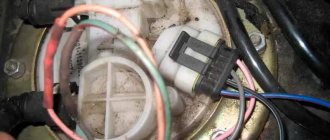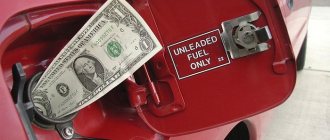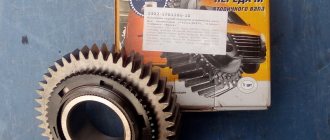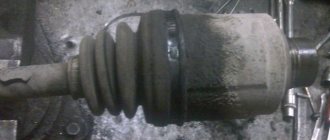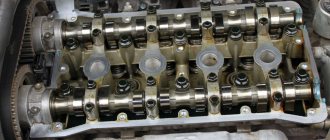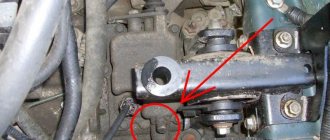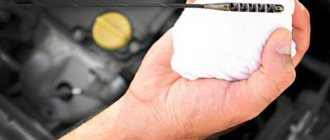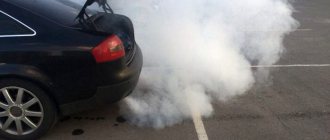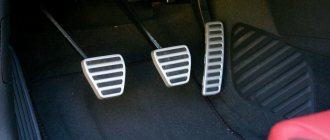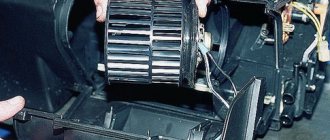Differences between winter tires and summer tires
At first glance, the only difference seems to be the tread pattern, but this is not the case. The main difference is the rubber composition. The winter version is specially produced flexible and soft, so as not to freeze in the cold and promote good grip on the road.
The second option, on the contrary, is hard, because traveling on asphalt heated by the heat increases the wear of the coating and high strength is needed to eliminate the possibility of tearing.
Therefore, it is not recommended to drive a kit that is not suitable for the time of year.
Soft treads wear out on heated asphalt and, when braking, have a long braking trail.
What winter tires don't make noise?
It is important to understand that if you choose the right tires with a certain pattern, with acceptable noise parameters that were determined during a test drive, the rubber can still make very unpleasant and irritating sounds. Then what winter tires don't make noise?
First of all, these are those tires that have the correct pressure. Experienced car owners have long noticed that overinflated wheels make much louder and louder noise than tires that are inflated in accordance with the manufacturer's requirements.
It is also worth considering such a factor as the purpose of the rubber. Why are winter studded tires noisy? This is usually because it is soft in nature. Accordingly, such rubber is perceived by the road surface much more fully and easily. A wide contact patch is formed, in some cases a low profile can play a major role, and all this does not contribute to normal sound absorption.
Why do summer tires hum?
The noise emanating from such a set is associated with the solid structure of the tire itself. Therefore, it is difficult to find a seasonal replacement with a low noise index. An important factor is the quality of roads. In the CIS countries, asphalt laying technologies are outdated, and in addition, the negligence of workers creates even more problems with the road surface. As a result, contact with asphalt, consisting of bitumen and crushed stone, leads to an unpleasant sound, due to which inexperienced warriors blame the quality of the tires, not the asphalt.
The following factors also influence noise:
- Air exhausts. A phenomenon characteristic of some tires due to the inability to quickly remove excess air, resulting in the characteristic hum of summer tires. The winter replacement is equipped with treads with groove patterns that release excess air well without making a loud sound. In this case, the tires begin to hum at a speed of approximately 67 km/h. High pressure in the chambers. Most car owners do not pay attention to pressure indicators in the chambers. What causes winter tires to hum when driving?
- Reinforced frame. Some manufacturers install a reinforced frame. This may cause noise while driving. Because the tire casing puts pressure on the tire.
- Damaged bearing . Sometimes car owners confuse tire noise with the sound of a faulty bearing. It’s easy to check the malfunction; you need to spin the wheel using a jack and if the tires hum like a bearing at a speed of 85 km/h, that’s the problem.
Is it possible to reduce the hum?
If we are talking about a hum from the bearing, there is nothing you can do, you need to go to a service station and change it. The unpleasant sound of rubber does not pose a danger to the driver.
You can reduce its noise in the following ways:
- When purchasing, you should pay attention to the “noise” index; manufacturers indicate it in decibels.
- Buy only high-quality rubber that produces a minimum of sound effects.
- Don't forget to check your tire pressure levels.
- Install additional sound insulation in the car interior, which will help reduce the overall noise level from the street.
Don't forget to check the car's chassis, which can also make unpleasant sounds due to certain malfunctions.
Answers from experts
Automotive workers give their answer to the question “why do tires hum?” The sound of tires depends on the pattern on the tread. Unlike driving on hot asphalt, winter off-roading produces sound when there is strong traction with the road surface.
In summer, the sound comes directly from the tire.
According to auto mechanics, sound defects can occur after changing shoes. And this is a fairly common occurrence.
Reduced noise during winter driving is a consequence of the deep tread pattern, which promotes strong traction on ice and snow.
How to get rid of the hum of the front wheels when turning
This phenomenon is most often observed in vehicles with power steering. In this case, the hum can appear at different speeds: on some cars it can be heard already at 40 km, on others - at 70. The noise may appear when turning the steering wheel, but the vehicle itself will stand still at this moment.
To establish the cause of the noise, it is necessary to diagnose the performance of the components that affect the control system. If they are the problem, then there will be noise both when moving and when stopping. When noise occurs when cornering, it may vary. For example, when turning left, be present, but when turning right, disappear completely.
The phenomenon may be affected by a malfunction of the power steering pump. Sometimes a complete replacement is required to fix a problem. First, you can try changing the fluid in the system. If its service life has expired, then the necessary properties for the functioning of the system have already been lost. Because of this, the operation of the power steering is disrupted, the elements begin to rub against each other.
If no problems were found during inspection of the steering system, the cause of the noise may be in the wheels. For example, a bearing has become unusable. If the noise occurs because of this, it will be heard even while driving on a flat road. When making sharp turns, the part breaks completely. If this happens, the vehicle will no longer be able to continue moving.
If you regularly hear a hum in the wheel when driving and turning, you need to contact a service station for diagnostics.
Causes of natural noises
Before we move on to discussing the possible reasons why there is a strong hum in a car at speed, it is necessary to define the concepts. The fact is that, depending on the degree of sound insulation in different cars, the driver and passengers will still hear some sounds coming from outside the cabin. Therefore, noises can be divided into three groups - natural, unnatural and others. There is no need to be afraid of the reasons why natural and other noises occur, but the sources of unnatural noises require additional diagnostics, since they are indicators of breakdowns.
So, the causes of natural noise include:
Liquid sound insulation for the bottom and arches
Liquid sound insulation is used to reduce noise in the cabin while driving. Designed for quickly covering wheel arches and the bottom of a car with a noise-insulating agent in the form of rubber. Read more
All of the above reasons and phenomena do not pose any threat to either the car or the driver and passengers, so you should not be afraid of them. The causes of so-called “other” noise are also harmless phenomena. Among them:
Why are summer tires noisy, how to choose the least noisy tires
When switching from winter tires to summer tires, the driver cannot help but notice the increased noise when the car is moving, especially if the car does not boast good sound insulation. When summer tires make noise, this is a normal situation associated with the design feature of summer tires. Noise when driving on summer tires does not always mean low quality tires. In this article, we will consider what causes increased noise when driving on summer tires, and why you should not be afraid of this.
1. What is the difference between summer tires and winter tires 2. Why are summer tires noisy - Quality and size of the tire - Road surface - Temperature of the environment and the wheel itself 3. How to choose the least noisy tires
Winter and summer tires are two completely different accessories for car wheels, despite the fact that they look the same. The main difference between tires is not the tread pattern at all, but the materials from which they are made.
When producing winter tires, softer rubber is selected so that it is minimally susceptible to frost, therefore does not become “oaky” at low temperatures and maintains traction. For summer tires, on the contrary, harder rubber is chosen to reduce its wear when driving at high speed on hot asphalt, thereby minimizing the likelihood of its “explosion”.
Please note: In summer it is not recommended to use winter tires, including because they may “burst” due to increased wear due to the use of harder materials.
Why are summer tires noisy?
There are several factors, each of which affects the increase in noise when driving a car on summer tires. Let's look at them separately.
Causes of hum in the car
The reasons for noise listed above are not critical, and, by and large, you can ignore them. However, more often than not, drivers are interested in the question of noise caused by the breakdown of one or another component in the car. Let's look at them in order.
Wheel bearing failure
According to statistics, this is the most common reason for the appearance of a hum in a car under a variety of conditions - while moving, when turning, when driving on roads with different surfaces. Signs of a failed wheel bearing on one of the front wheels may include the following situations:
Broken wheel bearing
The reason that the hum in the car increases when turning is that in such a situation the mass of the car moves by inertia to one of the front wheel bearings, that is, the load on them increases (when turning left, the load increases on the right front bearing, and when right turn - turn left). Accordingly, the knocking in it also intensifies.
Checking the wheel bearing is quite simple, and you can do it yourself without visiting a service station. In particular, to do this you need to jack up the car under the wheel whose bearing is supposed to be checked. You must first set the car to neutral speed so that the wheel rotates freely (this may not be done if, for example, you are checking one/two front wheels on a rear-wheel drive car). You also first need to put the car on the handbrake or install wheel chocks (the handbrake does not need to be turned on if the car owner plans to check the rear wheel bearings).
Why are tires noisy?
Often, after a seasonal change of tires on a car, drivers are faced with an effect such as rubber hum when driving.
This phenomenon cannot be attributed to a serious problem or malfunction of the chassis, but it does cause some discomfort when driving. Summer tires tend to make the most noise, while winter tires are quieter in operation. In this article we will look at the main differences between summer and winter tires, understand the reasons for the hum and give advice on how to choose the least noisy tires.
Noise and hum when the car is moving
Noise and hum when the car is moving
Every driver and passenger dreams of a quiet, comfortable car to enjoy soft music or conversation during the trip. The noise level in the cabin is a kind of indicator of the level of comfort of the car.
In reality we have a different picture. A car, which is a collection of many components and parts, no matter what brand and model it is, creates noise, hum and vibration while driving.
Natural causes of noise
All noises and hums created when a car is moving can be divided into natural noises and noises associated with a car malfunction.
Natural noise is created by the tire tread when driving on asphalt, concrete or any other surface. The higher the vehicle speed, the more noise from the wheels penetrates the vehicle. When driving on poor-quality surfaces, the noise from the wheels turns into a real hum and creates some discomfort when traveling, especially over long distances. Car tire manufacturers try to reduce the noise from rolling rubber as much as possible, but it is not possible to reduce it to zero.
Natural noise is also aerodynamic noise arising from the car body. The drag coefficient is the focus of attention of all car designers and constructors, and in most modern cars it has good indicators. But with a strong headwind or crosswind, aerodynamic noise can occur in the area of protruding parts of the car body (rear view mirrors, antenna, roof rack). The characteristic noise of a running engine and exhaust system is also normal, unless of course it exceeds the permissible level.
Noise due to vehicle malfunction
Another category of noise and hum is associated with malfunction of vehicle components and parts. Faulty wheel bearings, for example, create a peculiar hum that stands out above other noises, which intensifies when the wheel is loaded.
The bearings of the water pump and generator in the engine compartment can also howl. When the bearing completely collapses, the hum turns into a crunch. A malfunction of the car's suspension (silent blocks, vertical stabilizer bars, levers, brake pads, calipers, etc.) is characterized by a metallic knock when driving on an uneven road. A malfunction of the vehicle's transmission (gearbox, cardan drive, constant velocity joints) is also characterized by a peculiar characteristic hum and howl. Vehicle vibration occurs when engine mounts fail or tires fail (wheel runout). Less often, mainly when driving over rough terrain, noise occurs from objects accidentally stuck in various parts of the car. This could be a pebble caught between the brake disc and the wheel disc, a wire wrapped around a wheel or caught on the bottom of the car, or other objects.
